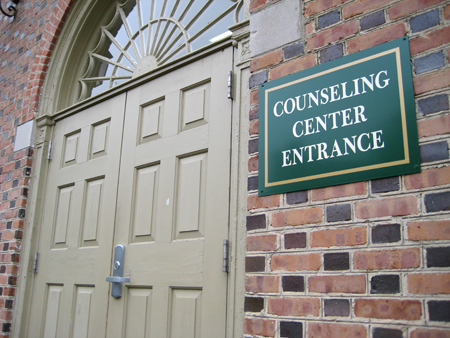The College of William and Mary received a grant of $235,000 in November from the Substance Abuse and Mental Health Services Administration to be distributed over the next three years.
Organizations on campus such as the Counseling Center and the Health Outreach Peer Educators will use the money to fund mental health projects on campus.
“I’m very proud of my staff and colleagues who were a part of putting the proposal together,” Vice President for Student Affairs Ginger Ambler ’88 Ph.D. ’06 said. “Foremost among the goals for that grant include increasing the amount of training for faculty, staff and students around suicide prevention, and providing psychological, social and emotional well-being on campus.”
With the additional funds, the College aims to raise awareness of mental health concerns among both students and faculty. The Counseling Center is responsible for faculty education while student organizations such as H.O.P.E. educate students.
In order to better educate faculty and staff, the Counseling Center hopes to have at least 80 percent of the faculty complete an at-risk module which will prepare them to deal with students who reach out to them for help. There are also plans for eight different education and training sessions as well as follow-up sessions in every remaining year of the grant.
“Basically, we want to have a faculty and staff who better understand what to do and how to recognize distress, [as well as] how to help students transition to the help that they need, whether it is from the Counseling Center or other resources like academic resources, medical resources or whatever resources will point them in the right direction,” Dr. Warrenetta Mann, Counseling Center Director, said.
Members of H.O.P.E. recognize the need for more open conversations about mental health on campus. Some of their projects include a “check-up day” for students to speak with counselors and a partnership with fitness instructors to help teach students different ways to reduce stress.
“I think that right now mental health comes up as a topic whenever there is some sort of tragedy on campus, and I hope to see mental health become something that we are constantly talking about in a less negative way,” H.O.P.E. Vice President of Mental Health Hope Smith ’14 said.
According to Ambler, the number of people with mental illnesses on college campuses is increasing, and their conditions are more severe than ever before, but Mann noted the College has positive rankings for certain aspects of mental health.
“Overall, we can say we’re very comparable to other universities and colleges,” Mann said. “There are certain aspects of our population where we are higher than the national average, but then there are places where we’re lower. For example, we have a lower rate of students with eating disorders here. In terms of students reporting active planning for suicide and things like that, we are higher than the national average.”
The Counseling Center, H.O.P.E. and other organizations are using this data to focus their efforts in the mental health issues more prevalent at the College.
“One of our big goals is [reducing] the stress culture on our campus,” Smith said. “For whatever reason, we can have the same amount of work as students on other campuses but our students are way more stressed. That’s something we need to start thinking about changing.”

